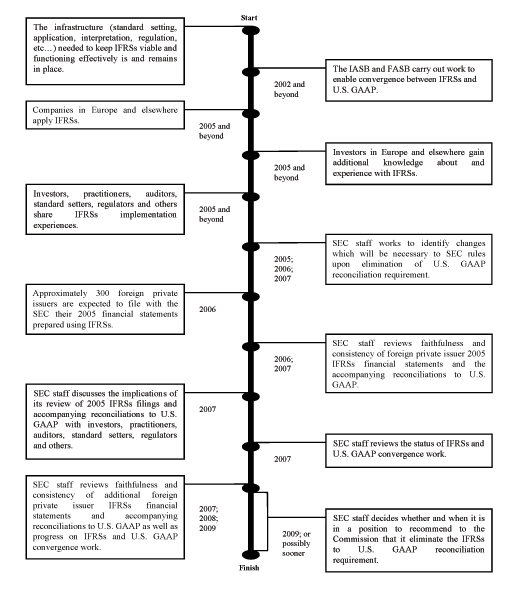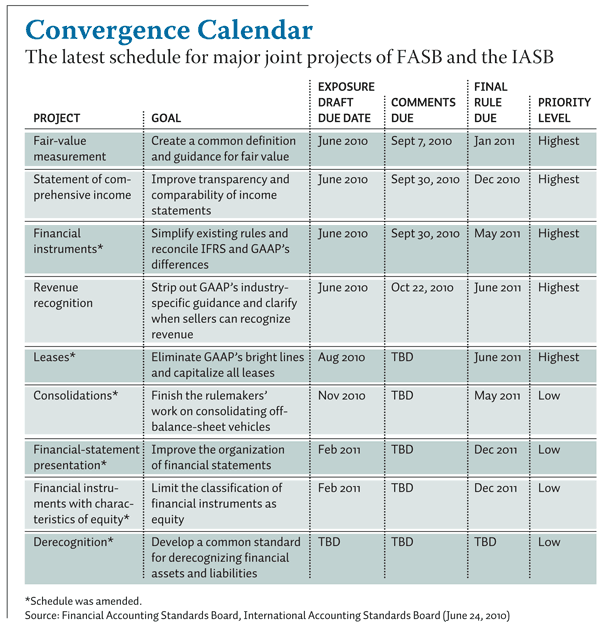International Financial Reporting Standards IASB FASB GAAP International Reporting
Post on: 16 Март, 2015 No Comment

The Pros and Cons of Converging with International Financial Reporting Standards
January 21, 2011
By Marc Fogarty CPA, CFE
Related Articles on IFRS:
Since 2003, the International Accounting Standards Board (IASB) and the Financial Accounting Standards Board (FASB) have indicated that a convergence of their separate standards to one global set of accounting standards is necessary. One large hurdle in the convergence process was overcome on November 15, 2007 when the Securities and Exchange Commission (SEC) voted 4-0 in favor of dropping the requirement which forces foreign companies with U.S. listings to reconcile their foreign results to U.S. accounting rules. Foreign companies with financial years ending in 2007 will no longer be required to reconcile their results to U.S. GAAP (Generally Accepted Accounting Standards).
The major debate that still exists is whether or not one global standard is best for the investing community. Several groups oppose the convergence, stating that inconsistent auditing and enforcement of international rules make it difficult to ensure credible financial statements. Significant hurdles still need to be overcome with respect to the convergence to one international set of accounting rules. Those hurdles include: time needed to convert existing records by CFO’s and tax directors, anticipated corporate tax impacts, effect on the U.S. Uniform CPA Exam and adequacy of training for U.S. investors as well as U.S. audit firms. Unless those obstacles are addressed shortly, the convergence project will continue to run into opposition in the U.S. markets.
On the flip side, the notion of having one single set of standards worldwide is appealing to some. One set of master standards will ultimately lead to investment comparisons on a worldwide basis as well as enable cross border transactions to be more transparent and reliable. The single set of standards will cut down the costs to which foreign companies investing in the U.S. markets will have to adhere. The U.S. GAAP reconciliation (recently repealed by the SEC), along with other strict U.S. reporting standards has long been a deterrent to foreign companies trying to raise money in the U.S. capital markets.

In addition to the International Financial Reporting Standards (IFRS) convergence, the U.S. standards-setters are looking at a uniform codification project. This project will create a more principles based set of accounting standards instead of the rules format that is currently in existence. The current IFRS guidelines are already a principles-based set of standards. To codify our standards is just another instance of leaning towards the IFRS convergence. The current rules based system creates a turn-off to many foreign companies that are used to the more friendly principles-based system. For example, the current U.S. standards have over 100 citations for revenue recognition. The principles-based system would create a central depository with concepts of revenue recognition rather than 100 citations of must do’s.
EisnerAmper recently participated in a field test run by the IASB. The test was geared to small- to medium-sized businesses (private companies) with the goal of converting an audit report from U.S. GAAP to IFRS. The IASB will be evaluating the results of the tests over the next few months in order to see what impact, if any, the IFRS convergence will have on small- to medium-sized businesses. Our firm noted no significant adjustments for our test client on the GAAP to IFRS conversion.
The idea of converting to IFRS proves to have many future benefits as well as many short-term obstacles. The future of the investing public, however, will ultimately benefit. The worldwide uniformity will create many opportunities for companies as well as accounting firms. To have the entire world on a level playing field is not a bad idea.
Marc Fogarty CPA, CFE is a Senior Audit Manager and member of the Technology Group at EisnerAmper.














